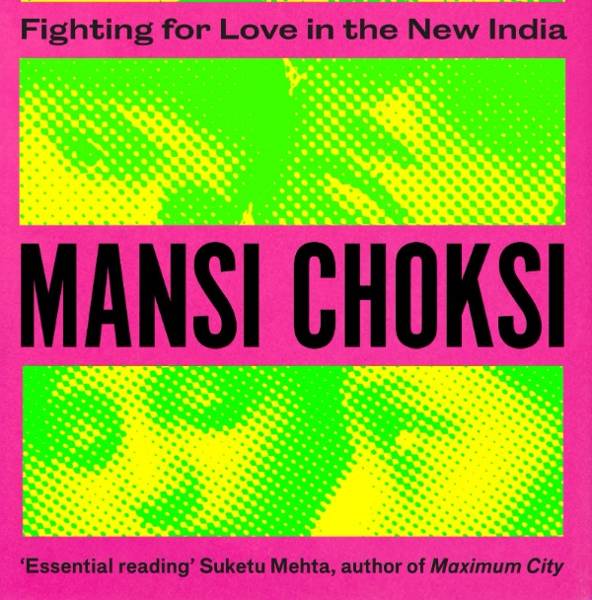
For those who don't believe in the afterlife, there are various stories we tell ourselves to make mortality palatable and bearable. Can any of these consolations honestly reconcile us to our inevitable demise? Andrew Stark is professor of management and political science at the University of Toronto. His latest book, "The Consolations of Mortality: Making Sense of Death" attempts to tackle this question, examining whether death can be a blessing even for those who love life. Here, he discusses some of the key arguments in his book.
Why did you decide to write a book about death?
There is no other book, as far as I know, that focuses on the great consolations for death that the ages have bequeathed to those of us who do not believe in an afterlife. As I began to have “more yesterdays than tomorrows” (to quote Bill Clinton), I more and more felt the need for such a work: one that draws on philosophy and literature to address the anguish that death can inspire in a contemporary "every-person" who believes that death really is the final curtain. So I decided to try to write it: a book about our mortal condition that is brutally honest, and yet as upbeat as that honesty would allow.
You pick out four “consolations” about mortality which have prevailed over time. Could you expand?
Each one of the four consolations, I should emphasise, itself comes in many varieties with different and often exotic twists and shadings. But basically they are:
First, death is benign. Epicurus, for example, noted that a self will never encounter its own death. As long as our self is present, death isn’t, and once death comes, our self is no longer here to be harmed by it. And so, if we think about it clearly enough, we will see that our own death is irrelevant to us and hence harmless. Buddhists, too, argue that death is benign because there is no such thing as a self to begin with, and hence there is nothing that death destroys. Existentialists, by contrast, say that only because death exists do we in fact have a self to begin with: the fact that our time is limited is what spurs us to act in the world and create our own unique being, and so for that reason death is a good thing. On all of these accounts, death is benign.
Second, when you think about it, you will see that mortality gives us all the good things that immortality would. If, for example, you dread death because it means the termination of all your precious memories, fear not – you can now record them all in an on-line life-log and so give your entire life a kind of “immortality,” as the Microsoft techno-guru Gordon Bell says, even though you will die. Or if you don’t want to die because you worry that your imprint on the world will vanish without a trace, you can create a great work of art, or score a brilliant political victory. You can even donate money to an institution and have your name carved somewhere in granite, and so make sure that you leave a permanent mark and gain a kind of “immortality,” as the New York Times puts it, in that way. There are dozens of variants of this idea, some more profound than others.
Third, immortality would be malignant. It would either be boring, if eventually we felt we had seen and done it all, or else – if we continued to see and do new things – we would eventually shed everything that characterised our previous selves and would die in that way. Not only that, but any attempt to square the circle – to imagine, say, that we could somehow remain the same person over endless time while encountering enough novelty to stave off boredom – would run into other problems. A person who remained much the same self while confronting a continually changing world would eventually grow terminally nostalgic. On all of these accounts, and others that I look at, immortality would be awful.
Fourth and finally, life eventually gives us all the bad things that death does. Death, of course, forces us to part with those we love. But if we lived long enough those we love would inevitably drift away from us anyway; as Shelley says, love would sooner or later perish even if we didn’t. And yes, death forces us to part with our own individual consciousness. But if we believe gurus who predict humanity’s one day melding into a post-human global consciousness of vast intelligence, or a myriad of similar scenarios, we will lose our own individual consciousness even if we don’t die.
My book offers a critical guide to these four broad consolatory streams. I conclude that no one of them works on its own, but that a different way of viewing death – one that emerges only when all four are considered together – does achieve a persuasive level of consolation.
Do we need to be consoled? What is it in human psychology that makes this so?
At an emotional level, we ache at the thought that one day we will drink an espresso for the last time, or see a sunset for the last time, or make love for the last time. My point in the book is that many of the most prominent philosophical consolations for mortality not only fail to address this emotional pain, they are also – however logically well argued – psychologically unrealistic, in that they rely on persuading us that we should not, and need not, view our selves as moving ever onward toward our deaths while the moments of our lives continually ebb ever further into the past. Instead, as the Buddhist consolation does for example, they tell us that we have no selves to begin with or, as Gordon Bell does, that the moments of our lives need not continually slip through our fingers back into the past: they can be preserved forever on-line.
What I try to do in the book is offer a consolatory approach that’s psychologically more true to who we are: that recognises that we are selves that move ever forward in time toward our death, while the events of our lives slip, moment by moment, through our fingers into the past, but then argues that it’s good that things are that way. The book’s own consolatory offering thus aims to be not just logically but psychologically persuasive, although whether it eases that emotional ache is a question a reader would have to decide for herself.
You examine our relationship to death through the work of great thinkers, but also through popular culture. How did you select the examples?
There was no methodology; I just picked examples that I thought would illustrate certain points. For example, when Donnie Evil, a musician from Bozeman, Montana, expressed pride at having sold ten records, more than Kanye West did, at Bozeman’s Cactus Records in the week before Christmas 2010, he said “My life’s goal was to outsell Kanye at something. Now I can die happy.” That perfectly illustrated a point I wanted to make about a person feeling that he had had a moment in the sun, and was then ready to die.
When Janis Joplin declared that her life was never going to “level off . . . it’s going to go straight up and when I’m 80, I’m going to die,” that helped me to comment on the common notion -- one belied by Joplin’s comment -- of life as shaped like an arc over time. And when Rosemary Clooney first began singing “We’ll Be Together Again,” she said, she “was imagining the end of a love affair”; later in life, she sang it “thinking of the friends who’ve died too young.” That perfectly illustrates the consolatory (if not entirely cheering) idea that many of the losses we suffer as a result of death – parting from a lover, for example – happen in life anyway when love ebbs.
How have perceptions of death and mortality changed over time?
The most relevant changes I see are these: We are now on the verge of an historical moment when, thanks to continuing progress in medical technology, more and more of us are beginning to anticipate significant increases in individual biological longevity. Simultaneously, we are embarking on an era when, thanks to our capacity to perpetuate records of our thoughts and lives on line, more and more of us are hoping to attain a kind of immortality through the memory of others.
For millennia, human beings went about these projects very differently. They aspired to attain biological longevity in the only way they could: through the genes of others, their offspring. And they pursued immortality religiously: through the immortality of the individual soul. The goals of life were procreation and salvation, which were available to everyone, not long life and celebrity, which were not. But now science and technology seem to promise the second pair to more and more us over time. To me, these changes in our understandings of longevity and immortality frame our current hopes and anxieties surrounding death.
Advances in medical science mean longer life expectancies, and talk of a time when science might “defeat death”. Is this desirable?
Greater longevity might be desirable, but immortality would not be. I am agnostic on how long a life of vastly increased longevity has to get before it becomes a life of for-all-intents-and-purposes immortality. As the geneticist Francis Collins says, “One man’s longevity is another man’s immortality.” An immortal life doesn’t literally have to be endless, but it must feel, to those living it, as if it were endless--and not simply a mortal life of vastly increased longevity.
Such an immortal life, I argue in the book, would be undesirable. And I am skeptical of the idea that the best of all possible worlds would simply be to have death as an option, not a necessity, so that if and when a very long happy life came to permanently pall, we would simply end it through some painless form of suicide. For us to be willing to terminate a happy life of great longevity, I wonder whether it wouldn’t have to get so much worse at the end that it would outweigh all the happiness that came before.
Set aside any wish to die having to do with declining health; assume that medical science has figured out how to keep us biologically fit for eons. What would prompt a person to want to die after hundreds of thousands of years would have to do with memory. Her memories of the past would have to have made life become crushingly stale: everything she did she’d remember doing countless times before. Or – to avoid that fate – her memories would have to regularly disappear, but that would mean that she would repeatedly lose contact with her previous self and its experiences. Or – by luring her to live in the past – her memories would have to have become the very things that have prevented her from adapting to unending novelty, rendering her terminally nostalgic. For a person of vastly increased longevity to choose to die, wouldn’t her entire life – as it exists in her memory – have to lose its value? For me that’s a real risk, and so I am sceptical even of the ostensibly happy notion that immortality would be fine as an option, even if not as a fate.

